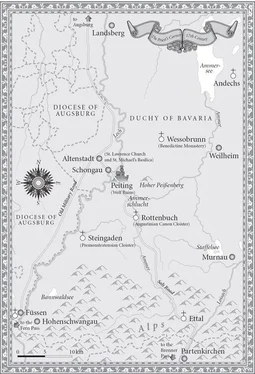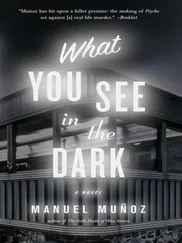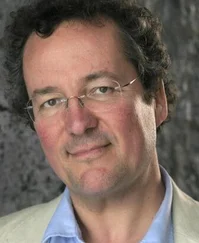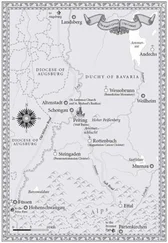Oliver Potzsch - The Dark Monk
Здесь есть возможность читать онлайн «Oliver Potzsch - The Dark Monk» весь текст электронной книги совершенно бесплатно (целиком полную версию без сокращений). В некоторых случаях можно слушать аудио, скачать через торрент в формате fb2 и присутствует краткое содержание. Жанр: Исторический детектив, на английском языке. Описание произведения, (предисловие) а так же отзывы посетителей доступны на портале библиотеки ЛибКат.
- Название:The Dark Monk
- Автор:
- Жанр:
- Год:неизвестен
- ISBN:нет данных
- Рейтинг книги:5 / 5. Голосов: 1
-
Избранное:Добавить в избранное
- Отзывы:
-
Ваша оценка:
- 100
- 1
- 2
- 3
- 4
- 5
The Dark Monk: краткое содержание, описание и аннотация
Предлагаем к чтению аннотацию, описание, краткое содержание или предисловие (зависит от того, что написал сам автор книги «The Dark Monk»). Если вы не нашли необходимую информацию о книге — напишите в комментариях, мы постараемся отыскать её.
The Dark Monk — читать онлайн бесплатно полную книгу (весь текст) целиком
Ниже представлен текст книги, разбитый по страницам. Система сохранения места последней прочитанной страницы, позволяет с удобством читать онлайн бесплатно книгу «The Dark Monk», без необходимости каждый раз заново искать на чём Вы остановились. Поставьте закладку, и сможете в любой момент перейти на страницу, на которой закончили чтение.
Интервал:
Закладка:
“Hey, Scheller,” one called out. “Are your bones aching from loafing around so much? They’ll hurt even more in just a while!”
“Start with the legs! Kuisl, start with the legs! Then he won’t be able to run away!”
The Schongauers laughed, but Jakob Kuisl paid them no mind. At six feet tall, he towered over them. When the crowd got too close, he swung the iron rod through the air as if he were chasing away some barking dogs.
In the market square, they were joined by the aldermen and the court clerk, Lechner, who would preside over the execution as the representative of the elector. He gazed over the ragged crowd of robbers, nodded to Jakob Kuisl, then together they moved through the Hof Gate and down the Altenstadt Road, along a noisy line of people winding through the snowy countryside.
Accompanied by a fiddle, a street musician improvised on an ancient melody. “ Scheller, Hans, Scheller, Hans, Just wait to feel Kuisl’s batons …!”
Arriving at the gallows, Johann Lechner looked approvingly at the broad area that had been cleared of snow. The hangman had done a thorough job in the last few days. Alongside the ten-foot-high platform where the convict was to be placed on the wheel, Kuisl had sunk three posts into the frozen ground, each with a crossbar so as to form a triangle. This is where the other four robbers would be hanged. In the front row, benches had been set up for the aldermen. The rest of the crowd would have to be content standing.
The death knell was still ringing. When everyone had arrived at the site, the clerk climbed the narrow stairway up to the wooden platform and held up a thin black wooden stick. Despite the large crowd, absolute silence reigned for a moment. The only thing audible was the ringing of the bell and the breaking of the stick.
Then Johann Lechner called out, “In the name of the power vested in me and as representative of His Noble Majesty Ferdinand Maria, I herewith announce that the execution can begin!”
The moment of silence was past, and the crowd howled. The robbers’ wives ducked as snowballs started to fly again. They withdrew with the children behind the gallows, protected from the angry crowd by two bailiffs. With the exception of Hans Scheller’s wife, the council had given all the women permission to bury their husbands, a concession made at the request of the hangman. In fact, Jakob Kuisl had the first rights to the men’s clothing and bodies and could have made a tidy sum through the sale of human fat, hides, and four pairs of the thieves’ thumbs.
The crowd was getting more and more agitated, surging against the makeshift roped-off area around the execution site. Jakob Kuisl looked into their foaming mouths contorted with hatred and their predatory eyes glazed from the hot mulled wine.
I’m looking into an abyss, he thought.
Snowballs and pieces of ice were still flying. A clump struck one of the robbers in the face so that his skin split open and bright-red blood trickled into the snow. The robber seemed oblivious to the pain after two mugs of wine. He staggered a bit, but even the bawling of his little son wouldn’t bring him back to reality.
Johann Lechner took his place next to the wooden platform. “Let’s go,” he whispered in the hangman’s ear, “the people want to see blood. If you don’t hurry up, it will be yours they see.”
Kuisl nodded. It wasn’t uncommon for a crowd to lynch a hangman if the execution didn’t go according to plan. If the executioner slipped up, if his blow missed the target, or if, in the excitement, he simply slaughtered the condemned men, he could be quickly strung up on the nearest tree. Or even on the gallows.
Jakob Kuisl clenched his fists and cracked his knuckles-his ritual at the start of every execution. Then he put on his gloves, walked to the gallows, and went to work.
The hanging of the four condemned robbers went quickly and silently. The hangman went about his task as if he were just roofing a house or constructing a table. He climbed up the gallows ladder with each of the condemned men, placed the noose around his neck, tied the rope to the crossbeam, climbed back down again, and pulled the ladder away.
The men wriggled around briefly, wet spots appeared on their trousers, then they swayed back and forth like scarecrows in the wind. Only the fourth robber writhed a bit longer, much to the Schongauers’ amusement, but soon enough it was all over for him as well.
None of this was new to the crowd. They saw something like this at least once a year. But this was only the prologue; the main attraction was yet to come.
The hangman looked at Hans Scheller, who clenched his fists and nodded imperceptibly. Then Scheller climbed up the stairs to the wooden platform.
A drawn-out, ecstatic cry went through the crowd as Hans Scheller reached the top and turned around to scan the surrounding countryside-the mountains, the forests, the gentle hills. He closed his eyes briefly and breathed in the cold January air.
There are worse places to die, the hangman thought. A battlefield, for example.
With the iron rod in hand, Kuisl now stepped onto the wooden platform and motioned for Scheller to lie down. In one corner lay a heavy wagon wheel encased in iron, which the robber chief would be bound to later. Wooden wedges were set on the floor of the platform at regular intervals so that Scheller’s limbs wouldn’t lie flat and would break more easily. The hangman would begin with the lower part of the legs, then slowly work his way up. The last blow to the cervical vertebra was the so-called coup de grace. For especially abhorrent crimes, this blow was avoided and the condemned man left on the wheel to die out in the open.
“One moment, Kuisl,” Hans Scheller said to Kuisl up on the platform. “I want to thank you for-”
The hangman waved him off. “Never mind. Take the poison and keep your mouth shut.”
Scheller shook his head. “There’s something else you ought to know. When we surprised those three other highwaymen, I didn’t just find the perfume, but something else, too. I had forgotten, but it came to me again last night.”
The executioner turned away from Scheller and looked down at the surging crowd. The people were getting impatient.
“Hey, Kuisl, what’s wrong up there?” some of them shouted. “You’re supposed to break his bones, not hear his confession!”
The first pieces of ice struck the hangman. Jakob Kuisl wiped the slush from his face and looked impatiently at the robber chief. “Spit it out, if it’s bothering you, but make it quick.”
Hans Scheller told the executioner what he’d found at the highwaymen’s campfire. The hangman listened without batting an eye. For the people down below, it had to look like the robber chief was begging for mercy one last time. When he finished, Scheller bowed his head and whispered a short prayer.
“Thank you,” Jakob Kuisl said softly. “If there is a just God, others will soon follow you. Now, put an end to it.”
Hans Scheller opened his fist, put the little poison pill in his mouth, and bit down. There was a soft crunching sound, and he had just enough time to lie down before darkness raced upon him like a summer thunderstorm.
Magdalena pushed aside the silken altar cloth and shook out the contents of the leather bag-a colorful collection of black and red berries, little bouquets of herbs, and pressed blossoms. Even the bezoar had survived the long trip! Unfortunately, the little bag was damp and crushed from being transported under her skirt for so long, and the herbs inside didn’t look very usable-some had even begun to take on a moldy sheen. Nevertheless, Magdalena hoped they would serve her purpose.
Basically, all she needed were two ingredients.
Читать дальшеИнтервал:
Закладка:
Похожие книги на «The Dark Monk»
Представляем Вашему вниманию похожие книги на «The Dark Monk» списком для выбора. Мы отобрали схожую по названию и смыслу литературу в надежде предоставить читателям больше вариантов отыскать новые, интересные, ещё непрочитанные произведения.
Обсуждение, отзывы о книге «The Dark Monk» и просто собственные мнения читателей. Оставьте ваши комментарии, напишите, что Вы думаете о произведении, его смысле или главных героях. Укажите что конкретно понравилось, а что нет, и почему Вы так считаете.












